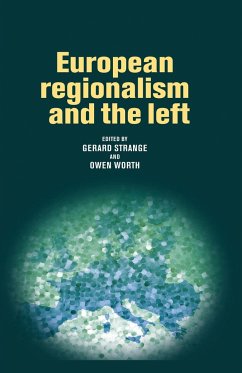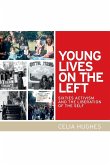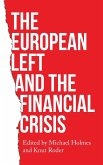Written against a backdrop of global economic and political turbulence as well as mounting crisis for the European Union, this book examines the relationship between contemporary European regionalism and the broadly defined political left. It does so by situating the analysis of the EU within the wider context of the global rise of neoliberalism, dating from the 1970s. This provides the background against which much left politics has subsequently been articulated. Bringing together contributions from internationally recognized critical scholars writing from a plurality of perspectives, encompassing international political economy, European integration studies, European politics and social theory, the book offers up fresh critical insights into the meaning of European regionalism and the possibilities and limitations it creates for progressive left politics. The book provides contrasting left perspectives on the history, meaning and political implications of core regionalist projects, notably the discursive construction of the European economy and project of European monetary union. The book critically debates the parameters of constraint, opportunity and ideological contestation implied by such structures and related institutions. It goes on to examine how European integration has fundamentally challenged traditional, state-centric, forms of left politics, such as social democracy, and forced the left to rearticulate its visions of what progressive politics means. Relatedly the book examines how integration has required the left to 'Europeanise' and in the process transform its organisational structures, such as political parties and trade unions. The book goes on to highlight how Europeanisation creates new uncertainties for the left framed equally by the geo-political limits of European regionalism itself and wider political transformations beyond Europe associated with globalisation. A concluding and reflective chapter draws these various strands together to examine how the European left might utilise weaknesses in post-GFC neoliberalism as well as positive opportunity structures associated with regionalism to advance progressive forms of politics in Europe and beyond. Unlike many earlier critical studies of this subject, European Regionalism and the Left consciously eschews any specific radical theoretical narrative or research programme in favour of an open-ended critical engagement with the political economy of contemporary Europe. As such it attempts to open up left analyses of Europe to broader traditions of critical inquiry.
Hinweis: Dieser Artikel kann nur an eine deutsche Lieferadresse ausgeliefert werden.
Hinweis: Dieser Artikel kann nur an eine deutsche Lieferadresse ausgeliefert werden.








